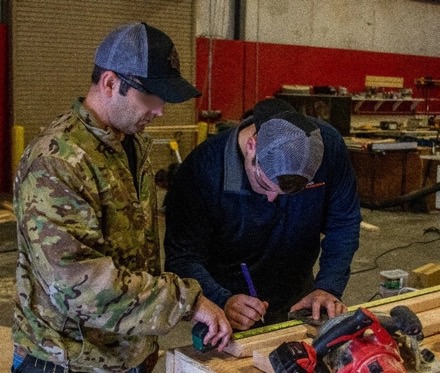
Engineers from 5th Special Forces Group (Airborne) created a force multiplier that eventually spread across the Special Forces footprint. The “18C Construction Course” provides the Special Forces Engineer Sergeants (18C) and other Special Operations Forces (SOF) personnel, the opportunity to sharpen their construction skillset, and benefits the individual as well as the Operational Detachment Alpha (ODA).
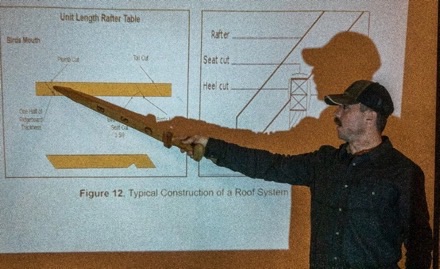
The Group Support Battalion’s (GSB) engineers instruct one to two classes quarterly depending on the demand signal, with eight to twelve Soldiers per class. The Engineer shops’ youngest Private First Class all the way through Staff Sergeants give expert electrical, carpentry, and plumbing instruction that can be tailored to individual or team needs.
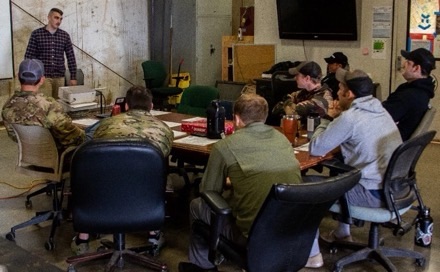
The genesis of this course started in 2021. Dan, a Construction Engineer Supervisor (12H) with 5th SFG (A) saw the need for a class during his time as the platoon sergeant. He developed slides, training material, and a basic outline for how the course would run. He said he saw a need for the teams to get training and showcase what the Engineers can do for the 5th Special Forces Group. To date, Dan has trained 60 personnel for five Special Forces Groups, and spent over 500 hours as the lead instructor for the course. The skillsets taught to the personnel impact the command-and-control network nodes for SOF operations by upholding electrical grid and support for SOF personnel, influencing five Combatant Commands battlespace integration across six continents. By training the enabler population, he magnifies the small Engineer footprint across the Group’s area of responsibility by creating trained personnel able to implement solutions with the crucial knowledge learned throughout the course.
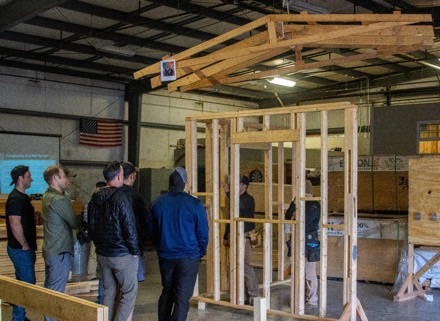
“While the 18C course enables team members to execute construction skills and drills required for their mission sets in austere environments, the real benefit is its ability to link the Special Forces Teams to a whole host of Engineer enablers, building the network for reach back support, increasing awareness and ultimately pushing capabilities to the Teams where they need it most, the front lines,” said Dave, the lead Group Engineer for 5th SFG (A). “Resourcing these classes is a no-brainer, even with the rising costs of Class IV. The engineer trades get sets and reps, the Special Forces Soldiers get skills to refresh while improving their reach back networks, and a whole number of additional enablers get cross-trained, adding to their enabler skill pool. Ultimately, it allows us to reduce contract costs, CONUS (Continental United States) and OCONUS (Outside Continental United States), and leverage existing DOD (Department of Defense) and Army supply networks to enable success in support of the ARSOF (Army Special Operations Forces) mission set.”
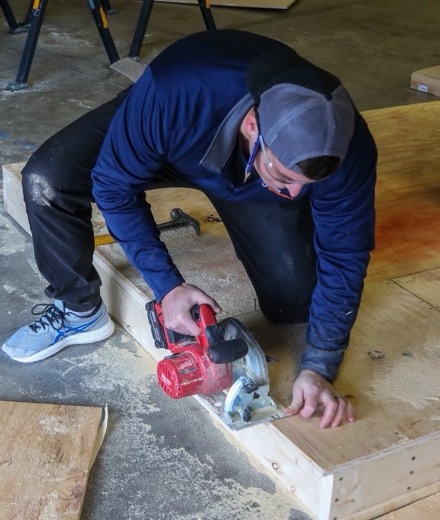
The Engineers of the 5th Special Forces Group (Airborne) continue to refine and showcase the hallmark vision of Dan, the Non-Commissioned Officer who created the course. They’re looking at the curriculum to include project management, concrete, and concrete masonry units into a new curriculum. The course of instruction can be tailored to implement other Engineers or enablers to ascertain the knowledge needed for future projects that can enable the appropriate amount of resourcing of staffing needed to accomplish missions and projects expediently and overcome hurdles. The ability to quickly train Soldiers with basic skills they can perfect with on-the-job training has the potential to enable the Group to reduce million-dollar construction projects to a fraction of the price. It will save money, enable cross-functional teams to emerge and execute a construction portfolio quicker and cheaper while completing construction projects sooner.
Courtesy of 5th SFG(A)


Who doesn’t use a gladius as a pointing tool for instruction? This is a great idea though as the construction “standards” while deployed vary considerably on what’s readily available.